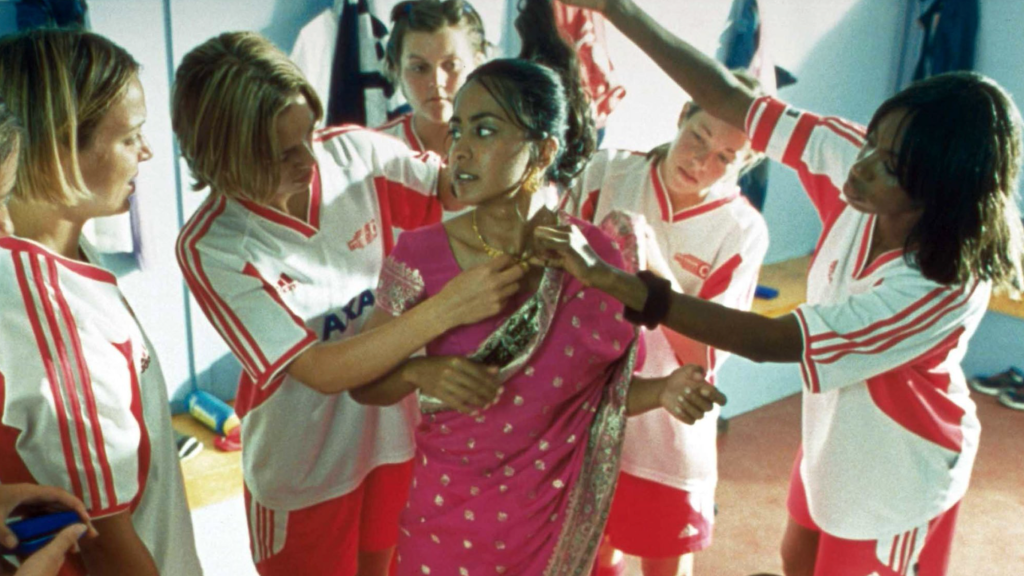In my childhood home, we keep an alphabetized cabinet of old DVDs. In picking a family holiday movie to watch with growing up, I often passed over Bend It Like Beckham (2002) lingering in the early B’s.
I made up some narrative in my head about the DVD being a gift from a family friend with misplaced kindness (“oh I saw this movie about a Punjabi girl and thought you’d love it”), so I strayed from watching it. This November, I gave it a try.
Bend It Like Beckham follows Jesminder Bhamra (“Jess” for short), an 18-year-old Punjabi British girl with untapped athletic talent, as she navigates two worlds: the expectations of her traditional Sikh parents and the promising challenge of women’s sports.
Twenty-one years after its release, Bend It Like Beckham still feels relevant to me, and the Asian diaspora of today. The story of Jess is an often overlooked tale of what trailblazers from our community must give up to achieve their dream.
No Longer Just A Dream
In the opening scene of the movie, prominent British soccer (I’m making the unfortunate decision to stick with American terms) commentators debate Jess’s talent as a Premier League player. Jess’s mother, a guest on the show, interrupts their discussion to voice her disapproval.
Most interpret this scene as akin to a dream sequence. It depicts Jess’s internal conflict about her future, the central problem that underpins the entire movie.
Though viewing the scene as a figment of Jess’s imagination is valid, I believe that this scene could just as easily be a flash forward to Jess’s actual future. She becomes an iconic soccer player, and the rest of the movie tells us the story of how she got to play alongside her childhood hero, David Beckham.
In minute one of the movie, the audience sees Jess achieve her dream and play alongside Beckham. They are forced to recognize that a Punjabi girl playing alongside the soccer greats…
Read the full article here





